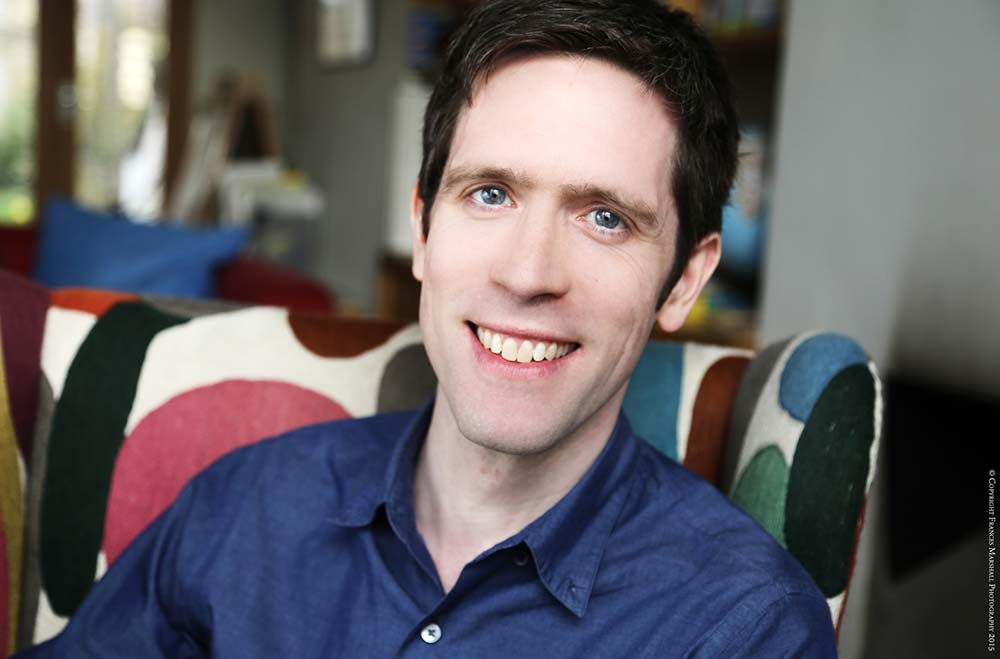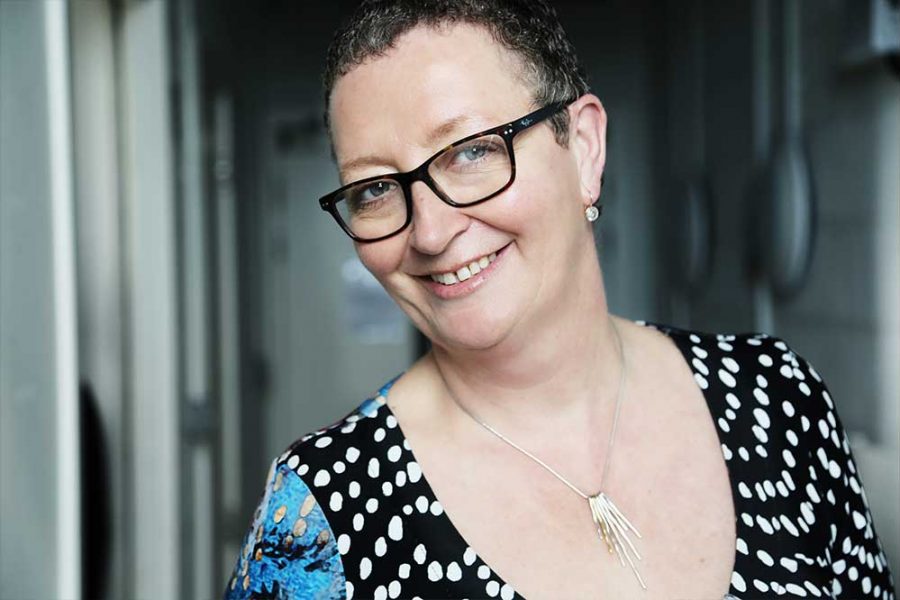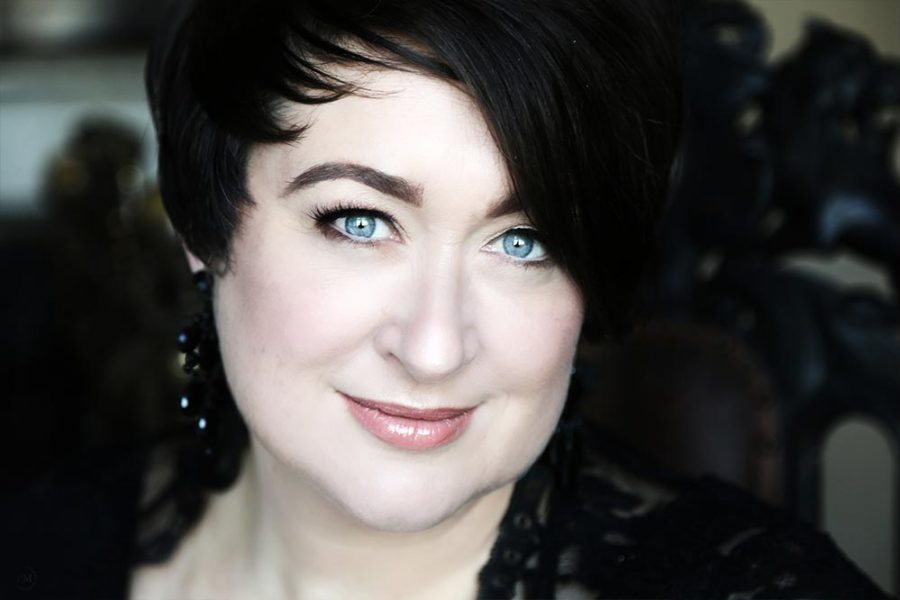Managing the Arts: Donagh Collins

March 2015
Words by
Emer Nestor
Photos by
Frances Marshall
Donagh Collins is chief executive of one of the world’s most preeminent arts management companies — Askonas Holt. With a truly impressive collective of singers, instrumentalists, conductors, and directors as its client-base, this innovative establishment is undoubtedly ahead of the game within the classical music industry.
Dublin-born Collins takes us on a musical journey from his days at the Royal Irish Academy of Music to his appointment at Askonas Holt in 2014.
My first experimentation in the world of arts management played itself out on Grafton Street in Dublin, where I busked in a string quartet every day of the summer..."

Did you set out to follow a career in Arts Management or did it find you?
My first experimentation in the world of arts management played itself out on Grafton Street in Dublin, where I busked in a string quartet every day of the summer during my university years with some great pals. We had a lot of fun, and used to get booked for wedding and funerals up and down the country. This was in the mid-late 1990s — we had business cards printed, and my mother used to take the messages at home and relay them to me on my pager…modern technology! I fixed the fees and drove the quartet wherever we were needed at breakneck speed in my father’s car! Those were heady days!
My biggest early influence (both musically and socially) was as a cellist in the National Youth Orchestra of Ireland, where I experienced not only the electricity of being in an orchestra, but also the opportunity to get involved with setting up a players’ committee, and social events. I ended up as orchestra manager and a member of the NYOI Board. Then I heard about a company called Askonas Holt in London where you could get paid for arranging international tours for orchestras like the Berlin Philharmonic…which sounded like a dream job! So I applied and got a position as assistant in the Tours Department!
So did I find it or did it find me?…I don’t know, it just seems like it was waiting there all along to be discovered!
Has your musical background informed your understanding of the artists managed by Askonas Holt?
Oh yes certainly! I studied the piano all through my formative years, studying with John O’Conor at the Royal Irish Academy of Music in Dublin, where I also studied cello with Betty Barrett, Nora Gilleece and Aisling Drury-Byrne. I was never committed enough to consider becoming a professional musician, and opted to study Mechanical Engineering at University instead. But I was a proficient musician and particularly loved performing in orchestras and playing chamber music with friends. I have enough experience and confidence to know what I know, and what I don’t know, and I’m certainly much happier putting great talent on stage rather than performing myself!
How have you found your first year as chief executive — was it what you thought it would be, or were there any surprises along the way?
Until 2013, I had led the Tours Department at Askonas Holt — arranging tours for great orchestras all over the world. I took over as Chief Executive at the beginning of 2014, taking responsibility from two great men, Martin Campbell-White and Robert Rattray, who themselves had overseen the formation of the company through a merger (Lies Askonas with Harold Holt in 1998) and had, between them, 80 years of experience as world-class artist managers. No pressure, then! So, it’s clear that I had a lot to learn, and that a huge responsibility awaited me.
I’ve really been enjoying the job so far. The company is in good shape: we have a fantastic team and an unparalleled list of artists. I’ve been learning a great deal about leadership, about running a company of over 60 people, and about how to make the most of opportunities that come our way. So there haven’t been too many surprises, but certainly a steep learning curve.
What are the needs of a classical musician today in the 21st century, and how does Askonas Holt strive to meet these needs?
World-class musicians need a team around them that allows them to excel on the platform, so that they can concentrate on their art. They need a trusted advocate who can work with them on their career choices, a person to turn to when there are difficult decisions to make. So, in that sense, artist management hasn’t changed for decades. But, the pace of life is changing. The advent of new technologies and social media has changed the expectations and needs of artists, so artist management needs to keep pace with the change. Askonas Holt meets these needs by investing in a talented workforce, and by maintaining its position as a market leader. We are tuned in to developments in new territories (say China or South America) as much as developments in new technologies (for example streaming and social media).
We work for artists who challenge what it is to lead an orchestra in the 21st Century, who question the place of opera in the 21st Century, and who ask what are the specifications of a music centre in the 21st Century. I like to think that Askonas Holt can be the leading arts management company of the 21st Century too!
What makes Askonas Holt unique above other arts management companies?
Committed passionate staff who put the music first. Our list of artists is one of the best in the world, and of course that attracts interesting new talent to join us for management. I believe that strong competition in the marketplace constantly helps to raise standards, and we do indeed have strong competitors, particularly in London and New York.




I believe that the live event is the key to success, and online sales (downloads, streaming, physical sales) can be increasingly linked to the ticket-holders at concerts and operas around the world."

In such a technological world where Bit Torrent sites and social media platforms jeopardise artists financially, where do you think musicians should house their music, and what can Askonas Holt do to help its artists in this area?
The question of where to house music online is one of the fundamental questions for the coming years. I’m very interested in this area, and keen that Askonas Holt is at the forefront in managing the online presence of the artist alongside their physical presence. As someone who listens to classical music, I know how difficult it can be to find what you want on the current online platforms. However, there are interesting initiatives emerging like Composed (Classic FM/Universal curated service), and the Quboz streaming service, which concentrate on classical/jazz genres.
I believe that these changes are an opportunity for all artists, whether they are household names or rising stars. We have to recognise that the recording labels are not as strong as they used to be, and we can’t rely on the recording companies to promote artists like they did a decade ago. But maybe this is a chance for the artist to take more control. We artist managers have to play our part in this process, by understanding the strategies of major companies such as Spotify, YouTube and iTunes (the latter is finally entering the streaming area too), as well as recognising that the physical product (CDs and DVDs) can still be important for many classical music fans around the world.
Album sales in the classical music area have always been poor, and I don’t believe they have been the major income for classical artist for many years. I believe that the live event is the key to success, and online sales (downloads, streaming, physical sales) can be increasingly linked to the ticket-holders at concerts and operas around the world.
With Nathalie Stutzmann listed as the only female conductor on your website, what are your thoughts on the current, and long awaited, rise of female conductors such as Marin Aslop, Inma Shara, Simone Young and Eimear Noone to the podium, and who would you like to add to the client list?
Well, since Final Note posed this question, we have taken on the European management of another conductor, Karina Canellakis, who happens to be female too. Karina is a hugely talented American conductor, assistant with the Dallas Symphony, and we believe in her artistry and talent. Of course, we didn’t take her on because she’s a woman! But, I do agree that the market has, at least until now, concentrated on male conductors, and hopefully we are beginning to redress the balance. It’s great to learn this week that Marin Alsop will again conduct the Last Night of the Proms, after her wonderful success in 2013.
Askonas Holt’s classical music client list is very piano/singer/conductor heavy, what is the company doing to draw in more clients from the rest of the instrumentalist community?
Askonas Holt has a very strong list of instrumentalists, though I recognise that we work for fewer instrumentalists than we do for conductors or singers. But, we can hardly complain with the likes of Emanuel Ax, Yo Yo Ma, Viktoria Mullova, Murray Perahia and Evgeny Kissin on our roster. In recent months we have taken on the management of Maria Joao Pires, András Schiff and Jonathan Biss, amongst others. And check out our website for more announcements in this area in the coming months!



Is there a ‘one to watch’ for you on the classical music scene?
I can’t tell you that, that’s top secret!
What inspires you?
This week I was inspired by scrolling through over 1,200 responses to the BBC’s ‘Ten Pieces’ music education project, which has already reached out to over half of the primary schools in the UK. I think it’s a wonderful project, and a great example of what the BBC can achieve through its networks and performing groups. (bbc.co.uk/tenpieces)
How do you juggle a busy family life with young children and a hectic schedule?
Online diaries, an amazing assistant and a most understanding wife! More seriously, I think the key is enjoying both sides of life and knowing your limits, I could be at a concert in a different city every day of the year but I’m unapologetic about the fact that my family come first, and I need a schedule that works for everyone. It’s also important that I can be present in the office to lead the company forward.
What do you enjoy most about your job?
I’m lucky to be someone who really enjoys their job; no two days are the same. I get a real buzz out of making something happen, in finding the balance between a dream and reality, and between an artistic idea and the commercial reality. I’m intrigued by the opportunity that new technologies are bringing to our business. I love the idea that we at Askonas Holt are instrumental in making music happen…for example… we arranged a concert for the New York Philharmonic, Alan Gilbert and Joyce DiDonato a fortnight ago at the National Concert Hall in Dublin — what a pleasure to bring that great orchestra to Ireland for the first time in nearly 20 years to a sold out audience. The musicians had a great time in Dublin, it was Joyce’s first time to visit my country and we had fun introducing her to the pleasures of a pint of Guinness at Doheny & Nesbitts!
What does the future hold for Askonas Holt?
I hope that the future at Askonas Holt will be continued growth and that we will continue to develop and learn as a company. I hope that we can amplify the talent that we represent and offer an unparalleled professional service to the artists. I intend to lead the company such that we are advising and supporting our artists at a time of great change, in terms of new technologies, new territories and new ways to tell stories to the world at large.
Askonas Holt will continue to be involved with some of the great projects in the classical music world — for example, we will continue our 10-year long association with the Fundamusical Simón Bolívar in Venezuela, touring their fantastic orchestras and choirs all over the globe. Who could have predicted the unbelievable success of that movement on the international stage a decade ago?!!!
And, as Simon Rattle’s manager, I am involved with a major new initiative in London, alongside the recent announcement that Simon will become the Music Director of the London Symphony Orchestra from 2017. We are working on a feasibility study for a Music Centre in the City of London, which could be a new home for the LSO, and a national centre for music in the UK. It’s just the beginning, but it’s exciting and fascinating to be a part of the process of determining the central vision and mission of such a place, which goes way beyond a world class hall with a great acoustic, but also with education, community, digital technologies and a national outreach at its core.
For more information on the world of Askonas Holt see: www.askonasholt.co.uk
All images displayed in this article are subject to copyright.
Share this article





